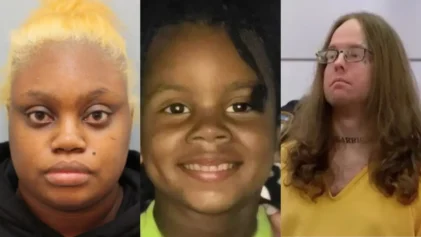A Virginia university has apologized for stealing and dumping Black bodies and using a man’s heart for a transplant without his family’s consent.
The Virginia Commonwealth University said it regrets digging the remains of Black and enslaved people in the mid-1800s and discarding them after dissections. The university system also issued an apology to the family of Bruce Tucker, a Black Virginia laborer whose heart was removed after his condition was deemed too severe in 1968.
“VCU humbly recognizes and deeply regrets the historic inequity and systemic marginalization of individuals as they do not reflect the society VCU works to advance — one in which people of diverse backgrounds and experiences are given the dignity and respect their humanity deserves,” the university said in a statement.
The move comes after the author of a book documenting Tucker’s inhumane procedure wrote an op-ed demanding that the university apologizes to the family. It was the first transplant performed by the Medical College of Virginia.
In “The Organ Thieves,” Chip Jones wrote the medical school was under pressure to perform the surgery. Tucker was transported to the medical college with a severe head injury. Dr. Richard Lower and Dr. David Hume, who are celebrated for the historic procedure, put Tucker’s heart in a white businessman’s chest. That man died about a week later.
Tucker’s family did not find out about the transplant until the funeral director told them that the man’s heart and kidney had been removed. Jones said the apology “won’t bring back Bruce Tucker, and it won’t assuage the hurt and trauma that is still felt by his son and some of his family members.”
The Virginia Commonwealth University Board of Visitors and VCU Health System Board of Directors announced the approval of a resolution issuing the apology on Sept. 18. The Richmond Times-Dispatch reached out to the man’s son, but he could not be reached for comment, it reports.
“I’m glad that VCU and its leadership have made this acknowledgement of such pain and really injustice to this Black man and his family,” Jones said. “There’s no way to justify from an ethical or moral point of view how he was treated and how his family was mistreated by never being told.”
The university system also will create a plaque in honor of Tucker’s “important role in the early history of heart transplantation,” and it will be displayed at the medical center. The school also sent a letter to Tucker’s family advising them of the apology and the memorial.
“VCU must confront its institutional history; contribute to the healing process by centering the voices that have too often been silenced; and create a body of knowledge that generations to come can learn from and continue to use to inform meaningful change,” the resolution says.
The system said it also “regrets the grave injustice” to the lives of 54 bodies discovered under a VCU Health building in 1994. Construction workers found a well filled with 400 human bones. Reports show the remains belonged to 44 adults and four children. Some bones belonged to an infant and others to a newborn baby. Archaeologists said the skulls belonged to people mostly of African descent.
A report found that the medical college had staff specifically for digging up graves at Shockoe Hill African burial grounds. Students reportedly learned how to amputate a limb and saw a skull in half to remove the brain on some of the bodies. Then, when the bodies no longer served a purpose, they were dumped in a well.
Some remains are still in the well because the VCU did not give archaeologists enough time to complete a full investigation, according to the Richmond Times-Dispatch.


